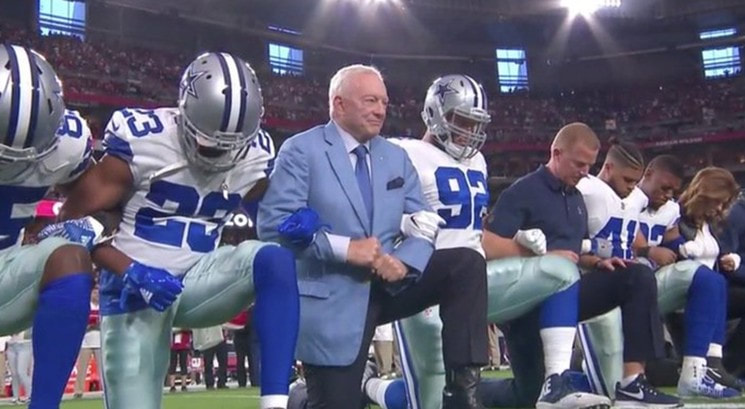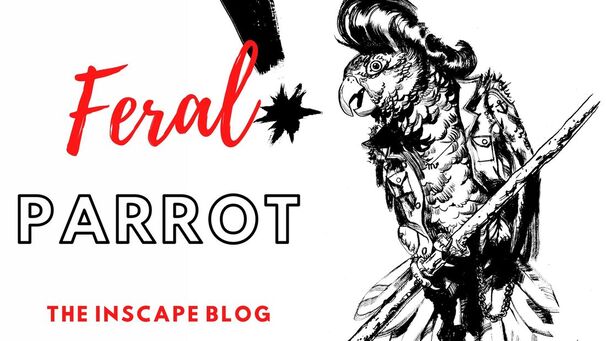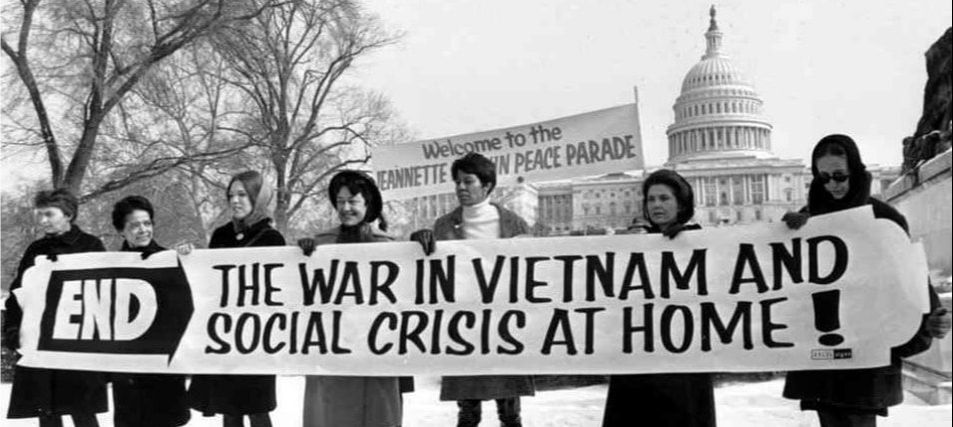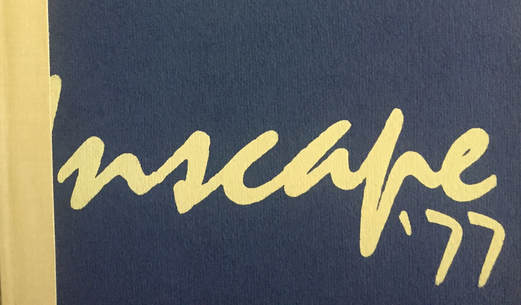- Folio No. 9
- About
- Feral Parrot : The Blog
- INTERVIEWS
- SUBMISSIONS
-
ISSUE ARCHIVE
- PRINT Chapbook No.6 Healing Arts
- Online Issue No.9
- Online Issue No.1 Fall 2016
- Online Issue No.2 Spring 2017
- ONLINE Issue No.3 Fall 2017
- PRINT Vol 72 No 2 Fall 2017
- PRINT Vol 73 No.1 Fall 2018
- ONLINE Issue No. 4 Fall 2018
- Online Issue No.5 Summer 2018
- FOLIO No.1 Fall 2018 VOTE
- ONLINE Issue No.6 Fall 2018 Fall Spirituality
- FOLIO 2 Fall 2019 Celebrating Dia De Los Muertos
- FOLIO No.3 -- Moon Moon Spring 2019
- FOLIO No.4 Celebrating New PCC Writers
- FOLIO No.5 City of Redemption
- FOLIO No.6 Spring 2020
- FOLIO No. 7 - Winter 2021 Into the Forest
- 2022 Handley Awards
- Inscape Alumni Board
- PRINT Chapbook No. 7 Healing Arts
- Blog
- Untitled
 Photo from Dallas Observer Photo from Dallas Observer This poem penned by Blog Editor Frank Turrisi explores a friend's true story in lieu of NFL reactions to comments made by President Trump. (click) by Frank Turrisi It was a perfect Sunday. The Dallas Cowboys won, And the Southern California weather lured me outside. As I step out on my block, I love the way that Hollywood Energy makes you feel anything is possible. My steps Feel so light, as I pass under the Mexican Fan Palms, Reaching so hopefully into the sunset. The green parrots Are flocking above, and talking a language I wish I Knew. The Jacarandas lay their purple flowers at my feet, And I remember not everyone likes them as I wonder, Does the color overwhelm them? I suppose they stain The pavement. Their scent perfumes the entire street, And make my feet stick to the ground. They are impossible To clean up. The residue of their nectar won’t easily Wash off the paint of the expensive automobiles. It was a perfect Sunday. I was happy to see my neighbor Could enjoy the day too. Before I could even say hi to her, She reeled back on her heels in terror, at just the sight Of me. Gasping, she pulled the leash around the neck Of her oblivious designer dog, and I noticed the helpless Animal suspended by its collar that looked like a noose Snapping for a second. I watched the woman in the yoga pants Cover herself up with her arms as if all I wanted to see was Under her halter tank top that exposed so much white skin. I stepped into the road to politely avoid her path, and smiled That same non-threatening smile that has earned me thousands In commercials, to let her know my dark skin and athletic build Were no peril. I am an actor, and so used to disguising my real Emotion for the pleasure of others. I wish I could say I hadn’t threatened anybody just on sight before. I almost Forgot that white billionaire owners, locked arms with black Players locking arms with whites and browns and took A knee during the national anthem just hours ago. There was Solidarity on America’s Team, and in that moment I was inspired By how they all stood for equality together. Perhaps I was too full Of nostalgia as I watched my favorite childhood game, and got lost. It was a perfect Sunday. I kept walking as I pretended I was on an audition. Like the times from days not too far Past, where I hoped for all those roles that cast me as a villain. They were the only parts I had the chance to get. I tried Not to take it personally, told myself it was a stepping stone, And one day I would be able to show all of them that I was more. Some cannot see my success now, like me, they choose to see What they like too. Maybe they’ll never see what I've become. In that Hollywood energy, I still hope anything is possible. The weather is still perfect, as I walk one with the green parrots Speaking the language only they will ever really know. In my heart, I stand for the anthem of this country that I love, And I kneel for the soldiers losing the battle on our soil every day. I remind myself, not everyone likes Jacarandas, some people Might never care if the Dallas Cowboys ever win at all. Maybe Their perfect Sunday doesn’t have solidarity on America's Team.
0 Comments
by Jennifer de Ita Our staff review their favorite issues from the Inscape Archives, available at Shatford Library, Pasadena City College In the 1970’s, America underwent a turbulent, transformative and triumphant period that spanned across several civil rights movements. The era was marked by scores of demonstrations, amassing protesters full of anti-Nixon sentiments, as well as proponents of gay, lesbian, and women’s civil rights issues. In particular, the Inscape 1977 edition, initially grabbed my attention with a simplistic black mat cover, but I opened it to find the stark contrast of crème whitepages adorned with delicate floral designs. Perhaps a metaphor of the feminist issues explored within? Then, unwittingly, I stumbled upon the retrospective poems penned by Joanne Ball and Karen Monte. Ball’s poem, “Beginnings” is denotable for exploring the controversial issue of abortion from the female perspective. Ball’s authentic portrayal of unplanned pregnancy directly challenges the traditional picture of the Brady Bunch family-unit that was spoon-fed to pop-culture at the time. The transcendent issue of women’s anatomical rights provides the nexus between Ball’s work and the current Presidential Administration. The insidious proposal of legislation to overturn Roe v. Wade has been a constant threat of regression on a woman’s right to choose today. In the Supreme court case Roe v. Wade 1973, women were finally given the fundamental rights to their bodies, and the issue still remains politically pervasive today. Ball’s prose illustrates the internal grappling of her narrator: I shared my sorrow with you, pumping it out in the small black room where my fathers stored his suits. Ball’s depiction of the physical and emotional undertaking of her narrator, retorts the social perceptions of the ‘callous and selfish woman’. The Supreme Court’s ruling on Roe v. Wade, dealt a progressive blow to the societal construct that even in the early stages of conception there is a “right to life”. Though it has been nearly four decades since women have attained anatomical rights, the same shame tactics, and puritanical views of pre-marital sex remain implemented within society this day and age. Inscape’s publication of reproductive choice during the highly provocative time of the 1970’s, embodies the magazine’s bold commitment to authentic artistic reflection on current political themes. Another work of mention that parallels the themes of women and social constructs resides in the work of author Karen Monte. Monte’s poem, “Mother” explores the strained relationship of a mother and daughter. The depiction of a fragmented home captures the shift away from the familial ideals of the 1970’s. Monte’s speaker struggles to distinguish an identity separate from her mother. As the speaker recalls her childhood and her mother’s painful quips, Monte divulges the societal hindrances of sexual objectification and ill-formulated values of identity. As Monte depicts on lines thirteen through fifteen: You must have hated me when I was in your womb. I made you ugly…. The narrator’s perception of her mother’s superficial priorities illustrates the societal pressures of being an attractive woman. This theme is elaborated further with the description of the mother’s “red lipstick, black dress and spiked heels”, and unveil the origin of the narrator’s identity conflict. When juxtaposed, Ball and Monte’s poems appear to chasm in relation, but a comprehensive read uncovers the thematic unification of women grappling with societal gender constraints. Both authors’ works resonate and maintain relevance four decades after publication. Unfortunately, these perpetual issues remain imposed on women in today’s society. Traditional stereotypes of gender bias are a standby in the Trump Administration arsenal, which has employed women's rights like a Machiavellian chest piece. The U.S President’s insulting rhetoric, as it pertains to the female aesthetic, reinforces the regressive and negative old tones women struggled with for so long, while demonstrating his Administration’s skewed views of what gender equality represents. The civil rights movements of the 1970’s, ushered in scores of women that commandeered gender equality. The PCC Inscape 1977 Fall issue emphasizes the importance of providing a platform for artists to express the issues of their time that may have been deemed too controversial for many publishers. It should not come as a surprise to discover the striking parallels between the retrospective issues of this Inscape issue and the current events of 2017. Along with the corrosion of women’s anatomical rights, the nexus is also observable in the presidential corruption marked by the Russian-Trump Investigations and the Nixon Watergate Scandal. The work of PCC Inscape contributors Joanne Ball and Karen Monte demonstrate PCC Inscape's dedication to diverse and significant works that reflect views of both PCC’s academic body and the regional community at large.
|
IMPORTANT NOTE:
PCC Inscape Magazine, housed at Pasadena City College, is following Coronavirus protocols. At this time our staff continues to read submissions and publish web content. Note:
Blog Posts reflect the opinions of the writer and not the opinions of Pasadena City College or Inscape Magazine Editorial Staff Members. Archives
December 2023
Categories
All
|




 RSS Feed
RSS Feed